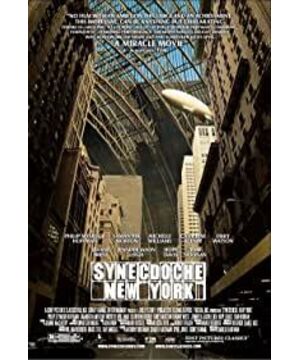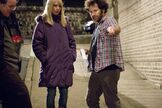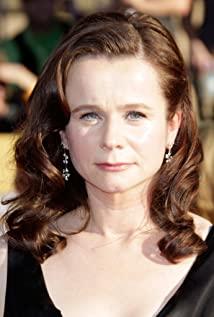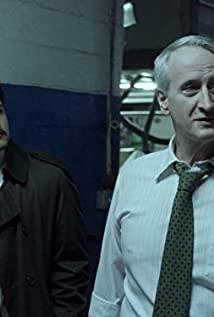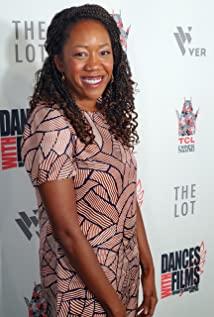1. Horror movie
It is said that the reason for this movie is that the film company wanted Charlie to write a horror movie script for Spike Lee, but then the horror movie was not written, and what was presented to everyone was a very Charlie Kaufman-style movie.
Actually, what I'm trying to say is - this is a horror movie.
Although, there are no ghosts in this movie. However, when watching this movie, when the protagonist Carden died quietly in his 40-year life, it was inevitable that he would feel scared, see fear, and even despair. This is such a movie, life is just like this, you may feel that the time in the future is still very long, but before you know it, the time will pass quietly, the annual rings will increase in circles, and we are also unknowingly day by day. of getting old.
The gist of the story goes something like this: theater director Caden is preparing a new play, earning a huge bonus for his successful "Death of a Salesman," and he wants to build a completely realistic New York corner on the stage. He locked the crew in a large warehouse in Manhattan and made them live as if they were in real New York. However, his ex-wife, the famous painter Adler left him with his daughter. Carden's actor wife also joined in, as well as Carden's lover Hai Rouer, plus the trouble of the three teachings and nine-rates of the crew, a farce was staged in "Fake New York".
This movie is a typical "play within a play". In this fake warehouse, Carden will imitate the stories he sees in real life here, and finally let others interpret his own life. Layer after layer, the whole situation goes back and forth. It makes it difficult for the audience to distinguish what is drama and what is real life.
These simulated stories and real life are interspersed with each other, and outline the various situations of life. No matter which play it is, it always reveals a touch of sadness, giving people a sense of helplessness.
Second, the synonymous method
"Synonymous method" is a typical representative of analogy family techniques. Its characteristics are based on a large number of associations, with the same or similar points between different things as the link, fully mobilize the functions of imagination, intuition, and inspiration, and cleverly use other things to find creative breakthroughs.
Just like the title of the film "New York Synonyms", the film is full of metaphors large and small. Audiences can search for these metaphors like anagrams as they watch, which may be the only joy this somewhat dull, hopeless film brings to the audience.
Among the many metaphors I understand, Hazel's house on fire is undoubtedly the most impressive. Although there would not be such a house in real life, it is not abrupt in such a "surreal" movie, which is the director's genius. It feels dangerous, always watching with the fear that the house will actually burn. The house is the place where human beings live, and it heralds many crises lurking in people's lives. Although he knew that there was a fire in the house, it was like hell, and although he knew his plight, he could live in it as usual, as if he had no feeling at all. Knowing the crisis, but choosing to escape, doesn't this explain the absurdity of life? Humans are social animals, and many factors in society, such as environment and interpersonal relationships, make people into trouble. These crises oppress human beings, and make people begin to question the world and put a question mark on the world, but it is human beings who eventually collapse. After all, people are small individuals, and it is difficult to change the world. Therefore, most people choose to turn a blind eye in the face of the crisis, not to think about it, and to live their own lives in peace. This may be the best way to keep themselves from harm. Bar.
There is also a metaphor that I will never forget, and that is the blood of my daughter. When the eleven-year-old Oliver blinked his big pure eyes and listened to his father's description that water pipes are like blood vessels, we all have blood vessels, and there is blood in the blood vessels, the little girl shouted: Do I have blood too? I don't want blood. At that time, this little girl was so pure and innocent. Before long, Oliver was taken to Germany by his mother, and when we, like Carden, saw her again, seven years had passed in the movie. When Oliver appeared in front of the protagonist with tattoos all over his body and writhing his body, we would even wonder, is this the lovely Oliver? This tattoo, which is described as a masterpiece by my mother's gay man, has no beauty at all, but feels dirty. It brings a strong visual and psychological impact to the audience. Seven years is not long, but short. It's not short, but it took away the innocence of a little girl. The girl who didn't like blood vessels eventually took her life because of the infection of tattoo ink. Is this the irony of life?
The biggest metaphor in this film is undoubtedly the miniature New York in the warehouse, where everyone plays someone else, someone who really exists in real life, and at the same time, interspersed with their real self. There are so many that it is sometimes difficult to tell which is actually performed in the warehouse and which is actually happening in the movie. Maybe, we don't have to make it too clear at all, life is inherently false and true, and true and false. Those actors, who are also archetypes, are also influenced when they see others acting out their real selves, they will find that they don't know themselves, they can't find their place, so they are afraid, they All in play.
3.
As the protagonist of this film, Caden is lonely, confused and sad. He feels that the meaning of life is the meaning of death. This is a man full of pessimism.
This man's understanding of his own life, his understanding of life, was actually written into the pastor's monologue: Everyone said that there is no so-called destiny, there is only what you create, even if the world turns year after year. , you are just a tiny piece of this second, you spend most of your time after or before you are alive, but when you are alive, you just wait in vain, wasting decades waiting for someone to come from or something, a phone call, a letter, or a meeting, to reassure yourself, but that never or seems to happen, really doesn't, so again you take the time to vaguely regret or vaguely Hopefully good things will happen next, and the truth is, I feel like I've been hurt for years and fucking years, and at the same time, I've been pretending I'm okay.
This is Caden's real life, and it's our real life. When finally Carden died quietly in the arms of that mother, the feeling of desolation penetrated to the heart. Hou Hsiao-hsien said: Desolation is a feeling of time and space, and the ending of this film is such a feeling. In fact, this man had always hoped to see his ex-wife, because when the ex-wife left with her daughter, she left almost no words or explained any reason. But until the end of the story, the ex-wife did not appear. Carden could hear her voice and understand her life, but until the end, the ex-wife did not show her face, just like the priest's monologue: it really won't happen. This is a blow to the head. There is always some hope in our life, and we always feel that some people and certain things will happen at a certain time in the future, but in fact, it does not necessarily happen.
More than 40 years of time have devoured Kaden's life and Kaden's heart little by little. The huge New York model in that warehouse, a real drama that has been rehearsed for twenty or thirty years, has given many people, including Caden himself, another window into life. In the end, all that remains is desolation.
This is how the movie ends with Caden's death, but the fear in our hearts cannot go away...
2009-07
View more about Synecdoche, New York reviews


